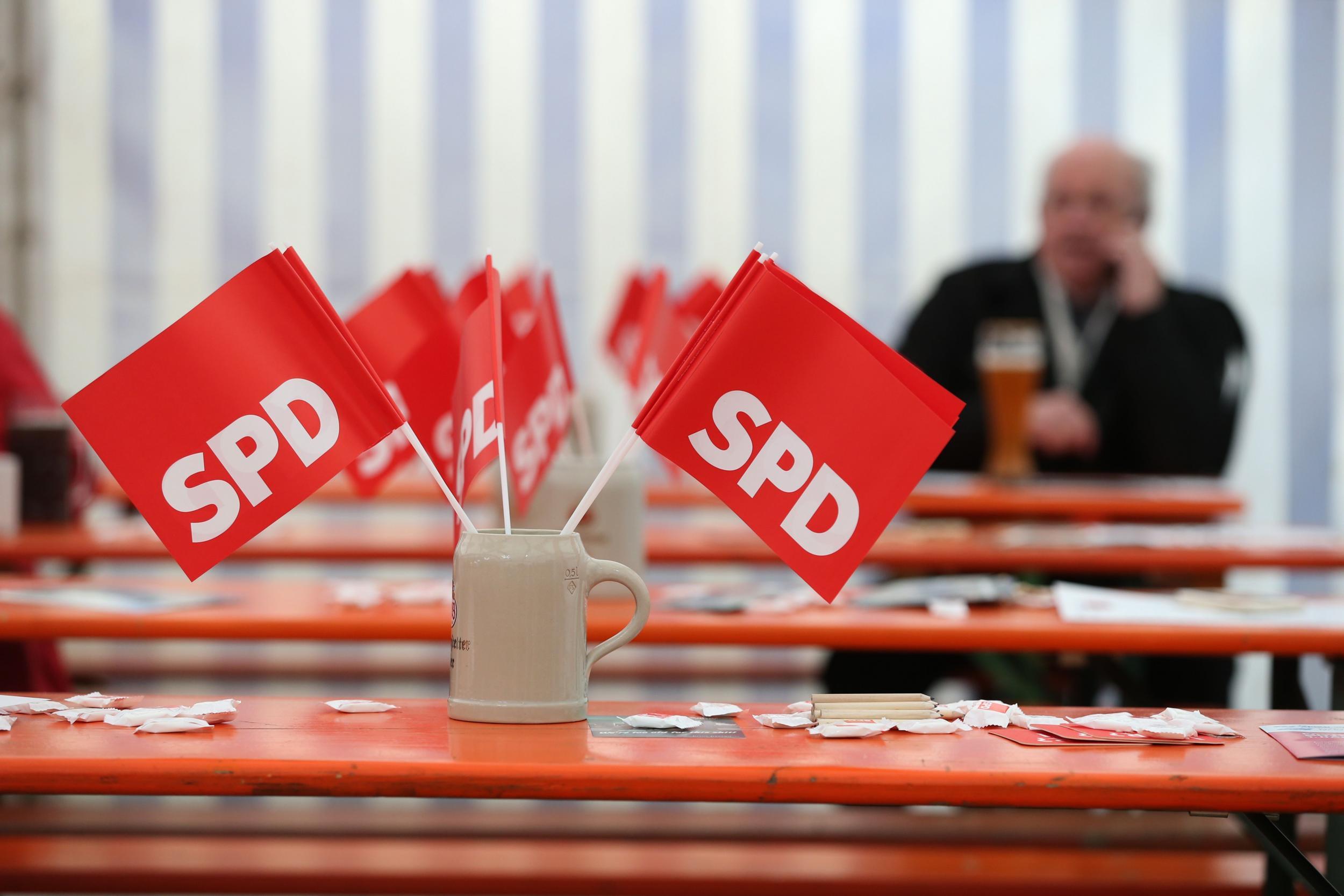Germany's social democrats sink to new levels of unpopularity after doing deal with Merkel’s conservatives
The SPD party grassroots is in revolt over the grand coalition plan approved by party bosses

Germany’s main centre-left party has plumbed historically unprecedented depths of unpopularity after negotiating a coalition with Angela Merkel’s conservatives.
The SPD polled just 17 per cent in a Spon survey published by German publication Der Spiegel, with another study by pollsters Civey showing the party on just 16 per cent.
The social democrats are now almost neck and neck with the far-right AfD, which has been broadly static on 13 per cent and in third place.
The AfD, which wants to bring in anti-Muslim and anti-migrant laws and claims “Islam has no place in Germany”, would be the official opposition in the German parliament if the so-called “grand coalition” between the SPD and Ms Merkel’s CDU goes ahead.
Though SPD party bosses have approved the “GroKo” (Grosse koalition) deal, under which the centre-left party would gain control of Germany’s foreign ministry, treasury and social welfare ministry, it now needs to go to the party’s membership for approval.
Party leader Martin Schulz, who announced this week he would be stepping down following the membership vote on the plan, faces a grassroots campaign from more left-leaning SPD members to block the grand coalition deal.
Simone Lange, the SPD mayor of the northern German town of Flensburg, has announced she will mount a leadership challenge against Mr Schulz’s anointed successor as leader, Andrea Nahles.
Ms Lange said party members had been left with “the feeling of being powerless compared to those who make decisions in Berlin without consulting the party’s grassroots”.
Either victor would be the first woman to lead the social democrats. Ms Nahles has been a strong backer of the grand coalition deal, though she is generally otherwise seen as coming from the SPD’s left wing. She has served as minister of labour where she oversaw improvements in employment rights.
Ms Lange, who says she wants to open up decision-making in the party, is a former crime scene investigator for her local police force and has never held a national-level position.
The SPD’s quandary is fairly typical of centre-left social democratic parties on the continent. France’s Parti Socialiste lost 286 seats at the last election, Greece’s Pasok has been reduced to polling around 5 per cent, while Spain’s PSOE is on just 21 per cent of the vote.

In the Netherlands the PvDA now polls single digits, while Austria’s SPOe did not make the presidential run-off in the most recent election. All at one time governed their countries and were a major political force.
Outgoing leader Mr Schulz previously ruled out a coalition deal after September 2017’s federal elections but was tempted by to the table by Ms Merkel to avoid the looming prospect of fresh elections. His party had just emerged from a previous grand coalition during which it did not fare well politically.
At the elections Ms Merkel’s CDU and their Bavarian CSU allies won 33 per cent of the vote, while the SPD secured a historically miserable 20.5 per cent. The AfD entered parliament for the first time on 12.6 per cent, the liberal FDP won 10.7 per cent, the Left 9.2 per cent and the Greens 8.9 per cent.
Ms Merkel first sought to negotiate a coalition deal with the liberals and greens, but talks collapsed after the FDP walked out late last year. Negotiations opened between the SPD and CDU in part to avoid the possibility of fresh elections. If the SPD deal collapses the CDU will be forced to either govern as a minority, or go back to the electorate.
Join our commenting forum
Join thought-provoking conversations, follow other Independent readers and see their replies
Comments
Bookmark popover
Removed from bookmarks